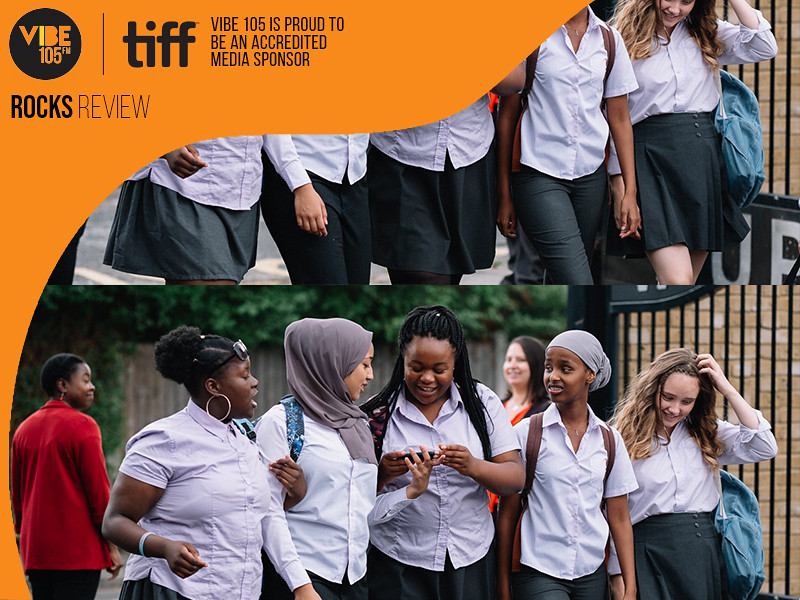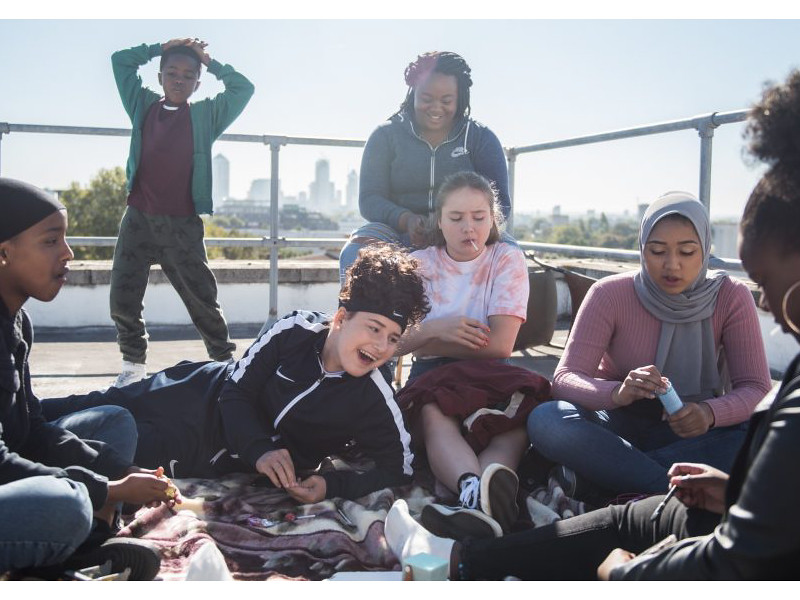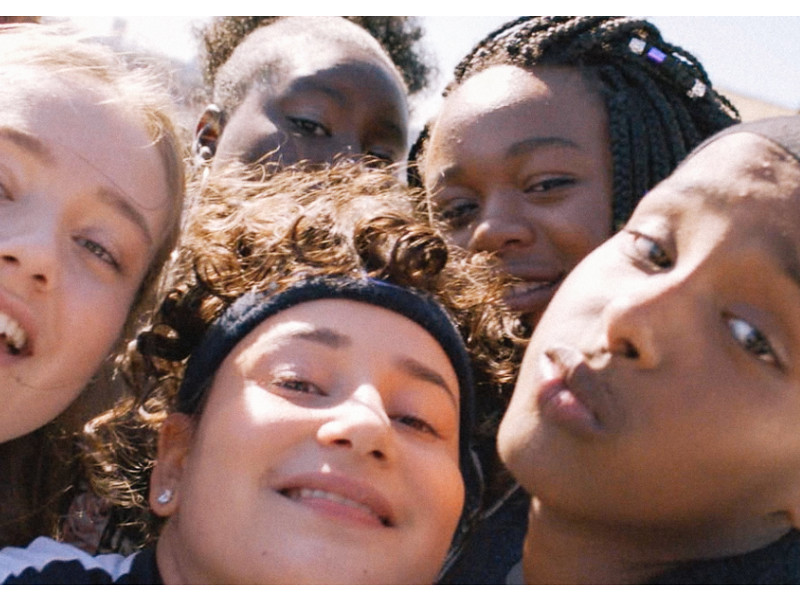|
By Benjamin Akpan ‘Girls will be girls’ is a saying that’s seldom – if ever – heard. Yet, it perfectly encapsulates the themes of Sarah Gavron’s latest feature Rocks; because more than anything, girls are resilient, brave, and exuberant, even in the face of adversity. Exploring a world so complicated with striking deftness, Rocks is a 93-minute parade of friendship, femininity, and youthfulness. Written by Theresa Ikoko and Claire Wilson, Rocks is a deeply honest coming-of-age story that realistically portrays what it is like growing up in East London. At its centre is Shola (Bukky Bakray), a 16-year-old British-Nigerian girl popularly known as ‘Rocks’. She lives in East London with her 7-year-old brother Emmanuel, and their single mother, who – as Shola’s grandmother puts it – isn’t cut out for motherhood. Rocks spends most of her time with her best friend Sumaya (Kosar Ali) and other school friends – a diverse group of young women just as flawed and eccentric as she is. One day, Rocks comes home to find that her mother has disappeared in a flimsy attempt to “clear her head,” leaving Rocks alone to cater for her younger brother. Despite this sudden turn of events that sees Rocks desperately attempting to evade social service workers at all cost, the film’s most captivating moments come from the relationship Rocks shares with her friends. Gavron captures with an unabashed rawness, a bunch of extremely diverse young women just being themselves. They exude a natural chemistry, organically bouncing off each other, while still perfectly independent of the group. Much of the scenes these non-actors share are comprised of improvisational dialogue, and these women give off an ardour that is real and uncalculated. It is however, a testament to Ikoko’s and Wilson’s writing that these characters are as fully fleshed out – even the ones with barely any lines aren’t relegated to roles that are shells of themselves. There’s a uniqueness to every character, creating within the audience a sense of familiarity with these women; somehow – thanks to their masterfully concocted idiosyncrasies, the women in Rocks mirror the mothers, sisters, daughters, and wives in our lives. Distant from constructs that would’ve sexualized these women or glamorized their issues, there is a certain truth that runs through the entire film: to provide for her brother, Rocks is forced to steal and lie, all the while pretending that everything is fine. Yet, the film is never overly sympathetic of her. Its emotional core isn’t based on the despondence of the situation, but on the audience’s deeper understanding of the circumstances, forged by shared experiences that relate in one way or the other to those of Rocks’. Gavron takes an observatory approach to filming the movie, as though the camera were an extra person in the background. She steps back – without prejudice – and lets the actors do the heavy lifting, putting forth characters that come off as truly resonant. Bakray plays the role of Rocks with such assuredness, it’s hard to believe that it’s her debut performance. It’s a quietly impressive feat pulled off here in contrasting the harsh realities of adulthood with the fragility of adolescence. Rocks is inevitably forced to grow up before she’s old enough; to raise a child long before she becomes a mother. The power of Bakray’s performance lies in her ability to teeter between the fearlessness reserved for adults, and the vulnerability that is usually characteristic of teenagers. One moment she is smart talking her way out of getting her money stolen by a racist hotel manager; the next she is silently weeping on the bus, concealing her pains from her younger brother. And as Rocks’ best friend Sumaya, Ali makes sure that her character never falls into the typical best friend trope of other coming of age films. She holds her own on screen besides Bakray, giving an expressive performance that is sincere and memorable. Between Bukray and Ali is a surprisingly energetic performance from D’Angelou Osei Kissiedu, the seven year old who plays Emmanuel. An ardent authenticity and spontaneity envelopes their performances, making the film feel more documentary in nature. There are segments of pure joy and passionate love despite the conditions they are dealing with; even though their lives are full of instabilities, it is certain that their affection for each other is genuine. In the end, whether or not Rocks manages to keep her life together is not the question. Rather, the film ponders upon whether her relationships will persevere. Without an ounce of sentimentality, Sarah Gavron provides a brutal, but empathetic look into the power and resilience of the women around us – one that’s endearing to watch. *Editor’s Note: Rocks premiered at the Toronto International Film Festival ’19 under the Platform Programme. |
Recent Posts
Categories
All
Archives
February 2022
|
|
GET THE APP!
Listen to VIBE 105 anywhere you go!
|
OUR STATION
|
TUNE IN RADIO
|
STAY CONNECTED
|
Copyright © 2021 Canadian Centre for Civic Media and Arts Development Inc. Except where otherwise noted, presentation of content on this site is protected by copyright law and redistribution without consent or written permission of the sponsor is strictly prohibited.





 RSS Feed
RSS Feed


